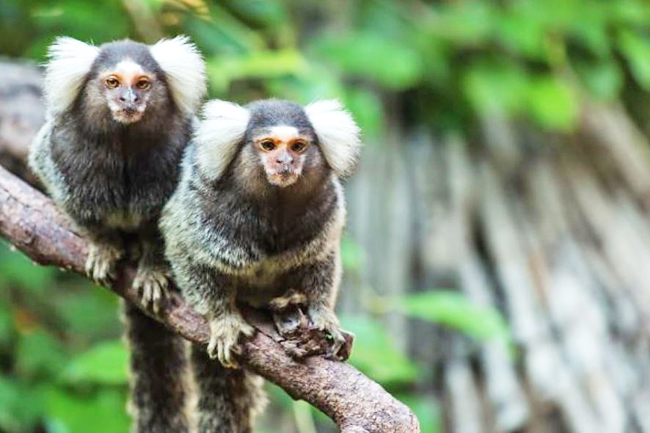AFP – Naming others is considered a marker of highly advanced cognition in social animals, previously observed only in humans, bottlenose dolphins and African elephants.
Marmoset monkeys have now joined this exclusive club, according to a new study published in Science on Thursday.
The diminutive primates use loud, high-pitched calls to assign each other “vocal labels”, as shown in research conducted by a team at a university.
“We are very interested in social behaviour because we think that social behaviour is essentially what drove us humans to be so special compared to other animals,” senior author David Omer told AFP. “We don’t run fast, we don’t fly, we don’t excel in anything else besides being social and all our achievements as a society are our societal achievements.”
Marmosets are ideal subjects to study the evolution of social behaviour and language in humans, he explained, because they exhibit similar traits, living in small monogamous family groups of six to eight individuals that cooperatively rear their young.
Led by graduate student Guy Oren, the researchers recorded natural conversations between pairs of marmosets separated by a visual barrier, as well as interactions between the monkeys and a computer system that played back pre-recorded calls. They discovered that marmosets use “phee calls” – very high-pitched vocalisations, as loud as power tools – to address one another. Notably, the monkeys could recognise when such calls were directed at them and were more likely to respond when addressed by their name.
The 10 marmosets they tested came from three separate families, and the research also revealed that members within a family group used similar sound features to code different names, akin to dialects or accents in humans. This held true even for adult marmosets that weren’t related by blood, suggesting they learned from others within the family group.




















































